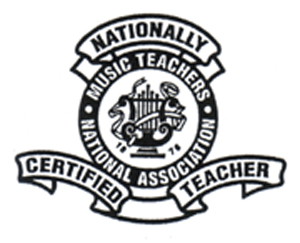|
Many of my students are preparing for competitions and festivals occurring later this spring. I wanted to share my recent experience as judge, and some of the actual feedback I gave to participants in the junior and senior divisions of the Barnes-Ferencz Piano Competition.
Although there is a certain challenge in communicating suggestions on a live performance in writing (as opposed to demonstrating the suggestions in a lesson/masterclass setting), I aim to provide encouragement and constructive criticism through my comments in hopes that will inspire students to dig deeper into their musicianship and technique. I was honored to have the esteemed pianist (and my mentor) Dr. Arno Drucker as my co-judge. Each student was required to perform a ragtime selection and a classical selection (memorized). Some of my comments on the ragtime selections: “One of the most important elements (maybe the most?) is the rhythmical integrity — a steady pulse and the hierarchy of the beats — followed by a sense of style and fun communicated by ease, humor, and contrast.” “Explore using your entire arm (wrist, elbow, upper arm, back) for power. Develop a sense of ease in this piece. It’s a hallmark of the style!” “Congrats on a wonderful mastery of this piece. You play it with ease and have a fantastic sense of the style. Great expression (dynamic contrast), left-right hand balance, pace, and pulse, and good musical direction throughout.” “Great understanding of the style (especially syncopation, voicing, clarity, and ease). Secure performance - very enjoyable!” Some of my comments on the classical selections: “Work on developing a sense of play (joy and elegance!). Work on your physical awareness while practicing/performing. You present a lot of intensity in your performance, but it’s currently coupled with excess tension. This affects your sound and control.” “The LH accompaniment is tricky here (Haydn Sonata). I am sure you have been working on it — don’t give up yet! It’s essential to a fluid performance and will allow you to really focus on making the right hand brilliant, joyous, and a real soloist.” “Be assertive in your dynamic changes. Don’t hint at them… convince us!” “Continue to work on mastering your technical work (e.g. scales, 4 octaves, hands together). You might be surprised how much you can gain from this and how it will directly improve your . “ “You looked very put-together, but I would encourage you to revisit your shoe choice for performances. High, stiff heels not only inhibit your pedaling but also your physical ease and thus your sound and overall technique.” “I can see that you have put much time and energy into your preparation. I’d like to see you focus on your tone and rhythm. It will take your performance up to the next level!” “Your interpretation of the Schubert Impromptu will benefit from a little more time (it feels a little fresh!). I can tell that you love the music. The A section should be faster, crisper, and more “classical” in approach. For the B section, keep the pulse steady within the expressive framework. Great job on voicing.” “Chopin: Strive for a long, singing line in the RH and peaceful LH accompaniment that demonstrates your understanding of the harmonic progression. Listen to good recordings (and live performances!) for inspiration.” “There is so much passion in your performing commitment to the music and to the audience. I enjoyed your playing and wish you all the best for continued growth and success in music.” Summary: Overall, we were much more critical of the classical selections, which often required a more advanced level of musicianship and technical mastery. We were forgiving of some slips (it happens, especially amongst young musical students) — the quicker the recovery, the better. Those who displayed strong technique demonstrated their disciplined practicing under the guidance of an experienced teacher (it truly is a team effort!). Successful performers were able to convey a sense of confidence in their personal interpretation, a wide range of dynamics (in accord with the composer’s markings!), an understanding the of musical style (including voicing, articulation, rubato, pedaling), and rhythmical integrity. Additional comment: Students were given a few moments to try the piano before beginning their selections. Although this was not judged, their technical warm-up often provided much insight into their preparations (and regular practice of technical exercises) and foreshadowed their performance.
1 Comment
2/17/2023 07:04:41 am
"Successful performers were able to convey a sense of confidence in their personal interpretation, a wide range of dynamics"
Reply
Leave a Reply. |
AboutElizabeth Borowsky is a pianist, teacher, and composer. She is a Nationally Certified Teacher of Music in Piano (Music Teachers National Association). SubscribeCategories
All
Archives
May 2023
|
Location |
|



 RSS Feed
RSS Feed